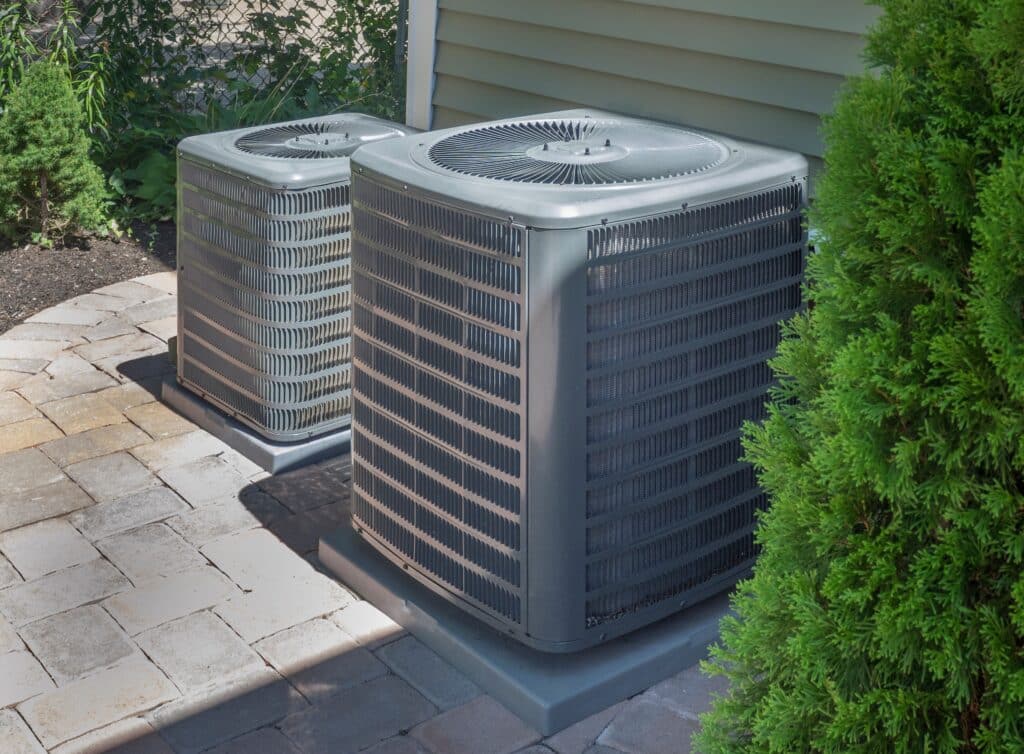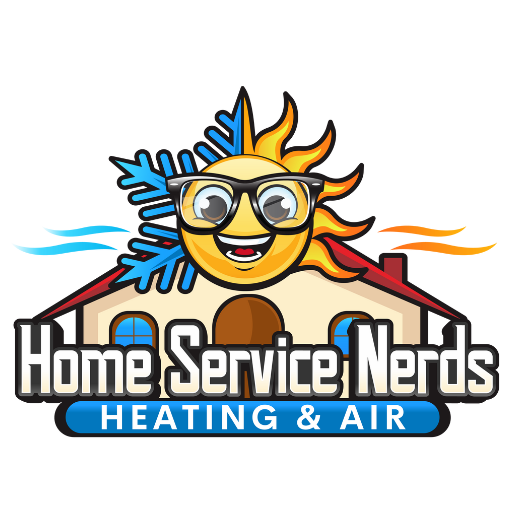Heat Pumps vs. Traditional HVAC Systems: Which is Better for Greenville Homes?
Choosing the right system for heating and air in Greenville, SC, homes can significantly impact comfort and efficiency. With a variety of climates and seasonal changes, homeowners often face the decision between installing a heat pump or a traditional HVAC system.
Heat pumps, known for their energy-efficient operation, can efficiently cool and warm your home but may struggle in extreme temperatures. Traditional HVAC systems, while more robust in handling temperature extremes, can consume more energy over time.
Understanding the key differences and benefits of each system can help you make a more informed choice for your Greenville home. In this blog post, we will compare heat pumps and traditional HVAC systems to help you decide which is better for your specific needs.

Energy Efficiency Analysis
When it comes to energy efficiency, heat pumps typically outperform traditional HVAC systems. Here are some points to consider:
- Seasonal Efficiency: Heat pumps provide both heating and cooling, which makes them particularly energy-efficient during milder climates. They utilize minimal electricity to transfer heat instead of generating it, offering significant savings on utility bills.
- Energy Consumption: Traditional HVAC systems tend to consume more energy, especially during peak seasons. This results in higher operational costs over time due to their reliance on fossil fuels or electricity.
- Environmental Impact: Since heat pumps rely on renewable energy to an extent, they produce fewer carbon emissions than conventional systems, making them a more environmentally friendly option.
Cost Analysis: Initial Investment and Long-Term Savings
Initial Costs
Choosing between a heat pump and a traditional HVAC system can significantly impact your upfront expenditure. Generally, heat pumps have a higher initial cost due to their dual functionality and advanced technology.
However, these costs can be offset by tax credits and rebates, making them a more attractive option for many Greenville HVAC buyers seeking long-term efficiency.
- Heat Pumps: Typically involve higher installation costs but may qualify for green energy incentives.
- Traditional HVAC: Typically lower initial purchase and installation costs, which could be appealing for budget-conscious homeowners.
Long-Term Savings
To determine long-term savings, consider operational costs over the system’s lifetime. Heat pumps usually result in lower utility bills due to their energy-efficient operation, which is highly beneficial for Greenville HVAC users.
- Energy Bills: Heat pumps are known to cut monthly utility expenses, particularly in milder climates.
- Maintenance Costs: Consider the potential differences in maintenance costs; while both systems require upkeep, heat pumps may need specific care in fluctuating weather conditions.
Suitability for Greenville's Climate
When deciding between a heat pump and a traditional HVAC system, it’s crucial to consider Greenville’s varied climate.
Climate Considerations
- Mild Seasons: Greenville experiences mild shoulder seasons where the energy-efficient nature of heat pumps can shine. With less need for intense heating or cooling, these periods allow homeowners to take full advantage of cost savings.
- Extreme Weather: During particularly hot summers or cold winters, traditional HVAC systems may perform more reliably. They offer robust temperature control that can be critical when facing Greenville’s hottest July days or unexpected winter chills.
Indoor Comfort
Maintaining comfort inside your Greenville home means more than just temperature regulation.
- Humidity Control: Traditional HVAC systems are often equipped with superior dehumidification capabilities, which can be beneficial during the moisture-heavy summer months in Greenville.
- Air Quality: Improved air filtration systems, often found in modern HVAC units, ensure that Greenville residents breathe cleaner air, an essential feature, particularly for those with allergies.
Installation and Maintenance Considerations
When installing either a heat pump or a traditional HVAC system, it’s important to weigh the complexity and requirements of each. Let’s explore these factors further.
Installation Process
- Professional Expertise: Both systems require skilled technicians for installation, but heat pumps may demand installers familiar with their sophisticated technology. Choosing experienced HVAC professionals in Greenville can ensure proper setup.
- Space Requirements: Heat pumps often take up less space than conventional units, which can be a significant advantage for homes with limited indoor/outdoor real estate.
- Time Investment: The installation process for a heat pump can be lengthier, given its dual functionality. However, once installed, they offer streamlined performance for both heating and cooling.
Maintenance Needs
Maintaining optimal performance requires regular care for both heat pumps and traditional HVAC systems.
- Routine Servicing: Both systems benefit from annual check-ups, but heat pumps may need extra attention depending on seasonal shifts.
- Repairs and Parts: Traditional HVAC systems might require more frequent repair services for components such as furnaces and compressors, while heat pumps are generally efficient with fewer moving parts.
- Durability and Lifespan: With Greenville’s climate in mind, heat pumps can last up to 15 years with proper maintenance. Traditional systems may have a similar lifespan, but efficiency could degrade faster if not well maintained.
User Experience: Comfort, Noise, and Air Quality
- Comfort Level: Homeowners often choose systems based on the comfort they afford throughout the year. Heat pumps deliver consistent temperature adjustments, efficiently transitioning between heating and cooling modes. Conversely, traditional HVAC systems are lauded for their robust heating capabilities during cold snaps and their adept cooling during intense heat, offering a comforting and reliable climate control experience.
- Noise Levels: Consideration of noise can play an essential role in choosing the right system. Heat pumps are generally quieter due to their design, providing a peaceful environment, which is especially important for homes with open-plan living spaces. On the other hand, some traditional HVAC systems can produce noticeable noises, particularly in older models.
- Air Quality Solutions: Ensuring high air quality is crucial, and advancements in HVAC technology have made it possible to integrate features that significantly enhance indoor environments. Many modern systems, both heat pumps and traditional HVAC units, offer advanced filtration and purification options, which help reduce allergens, dust, and pollutants. Consulting with experienced HVAC professionals in Greenville, like Home Service Nerds Heating & Air, can guide you to the ideal system tailored to your home’s specific air quality needs.
Making the Best Choice for Your Greenville Home
Deciding between heat pumps and traditional HVAC systems requires careful consideration of various factors.
Both systems have their advantages, but heat pumps often emerge as a superior choice for Greenville homeowners due to their efficiency, environmental benefits, and suitability for the local climate.
However, individual needs and preferences play a significant role in making the right choice. It’s important to assess your specific circumstances and consult with professionals to determine which system aligns best with your goals.
Whichever system you choose, investing in energy-efficient technology can enhance your home’s comfort while contributing to a more sustainable future.
For homeowners wanting to explore further, our team is here to provide expert advice and help you choose and install the best system for your Greenville home.
Reach out to learn more about how we can assist you in making an informed decision.



